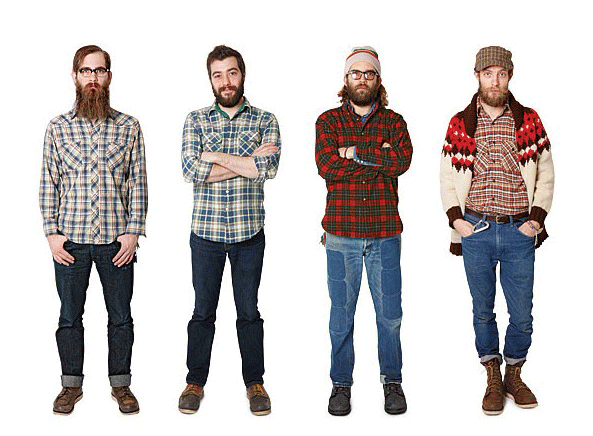When you hear the word 'hippie', you probably picture something like this:
When the 'hippies' come up in conversation, you might think of the 60s, Woodstock, drugs (lots of drugs), psychedelic music and clothing, the Summer of Love, Vietnam protests, peace, love, etcetera. We all know the hippie stereotype. With the end of the 1960s, the hippie movement was dying, but the movement impacted future generations. Hippies used to be a thing of the past, but in recent years, we've all been exposed to the modern hippie: the hipster. With that, you probably picture someone like this:
However, unlike the hippies, the hipster counterculture is difficult to define. Hippies were focused on harboring change and speaking up for what they believed in. Modern hipsters are focused on being (or appearing) cool and liking things that aren't mainstream. Except, hipsters do care. They get so upset when something they love becomes mainstream that they state 'I liked that before it was cool', as if to maintain their ahead-of-the-curve nature.
Unlike the hippies, hipsters don't have a set of ideals that they all follow. Today's hipsters recycle the past instead of creating something new. Hippies, however were so different than everyone else at the time that they had the ability to push ideas that young people today take for granted. Now, most kids grow up seeing nothing wrong with the LGBT community or people of a different race or ethnicity. Hipsters today aren't fighting for sexual, political, and personal freedoms — they're just trying to be cool.
If the hipsters can be defined in any way, I think it would be this.
- Retro is cool.
- Nerdy is cool.
- Irony is cool.
- Living eco-friendly and eating organic is cool.
But the golden rule of hipsterdom is to be viewed as different and indifferent to your uniqueness.
But really, how new is this idea? The hippies of the 1960s were all about being yourself, and not caring what other people thought. They were also trying to be eco-friendly and championed being unique. Where hippies were extremely politcally and socially active, hipsters are primarily in-tune to their own niche and couldn't care less about everyone else.
Unless hipsters start caring (like the hippies), their movement will never get off the ground. Part of the death of the hippie was that a lot of the things that made them different--like long hair, various fashion choices, music tastes, and ideals--became mainstream.
In my opinion, everyone has a part of them that's somewhat hipster. For me, I own a record player and listen to records. I would agree with the statement that music sounds better on vinyl. For the most part, my personal style is pretty preppy. I don't get the fascination with beards, man buns, and most stereotypically hipster things. Part of me fits a hipster stereotype (I guess), but the rest of me is just pretty normal (or in hipster terms, mainstream).
But perhaps the bigger question is this: will hipsters die out like the hippies? Or will they become the thing that they dread most--mainstream?
More about hipsters here!


























